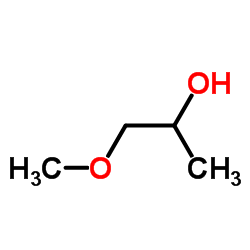930-37-0
| Name | Glycidyl Methyl Ether |
|---|---|
| Synonyms |
(Methoxymethyl)oxirane
3-Methoxypropylene oxide Methyl-(2,3-epoxypropyl) Ether 2-(Methoxymethyl)oxirane Methyl glycidyl ether Epimethylin Glycidyl Methyl Ether 1,2-Epoxy-3-methoxypropane 3-Methoxy-1,2-epoxypropane EINECS 213-216-7 2,3-Epoxypropyl methyl ether |
| Density | 0.9807 g/cm3 (20 ºC) |
|---|---|
| Boiling Point | 113 ºC (760 Torr) |
| Molecular Formula | C4H8O2 |
| Molecular Weight | 88.105 |
| Flash Point | 8.1±3.4 °C |
| Exact Mass | 88.052429 |
| PSA | 21.76000 |
| LogP | -0.17 |
| Vapour Pressure | 21.6±0.2 mmHg at 25°C |
| Index of Refraction | 1.411 |
|
Glycidyl Methyl Ether
SAFETY DATA SHEET Section1. IDENTIFICATION Product name:Glycidyl Methyl Ether Section2. HAZARDS IDENTIFICATION GHS classification
PHYSICAL HAZARDS
Category 3 Flammable liquids HEALTH HAZARDS Category 4 Acute toxicity (Oral) Acute toxicity (Dermal)Category 3 Category 2 Skin corrosion/irritation Serious eye damage/eye irritationCategory 2A Not classified ENVIRONMENTAL HAZARDS GHS label elements, including precautionary statements Pictograms or hazard symbols Signal wordDanger Flammable liquid and vapour Hazard statements Harmful if swallowed Toxic in contact with skin Causes skin irritation Causes serious eye irritation Precautionary statements: Keep away from heat/sparks/open flames/hot surfaces. - No smoking. [Prevention] Keep container tightly closed. Use explosion-proof electrical/ventilating/lighting equipment. Take precautionary measures against ignition by the static discharge and the spark. Do not eat, drink or smoke when using this product. Wash hands thoroughly after handling. Wear protective gloves and eye/face protection. Glycidyl Methyl Ether Section2. HAZARDS IDENTIFICATION [Response]IF SWALLOWED: Call a POISON CENTER or doctor/physician if you feel unwell. Rinse mouth. IF IN EYES: Rinse cautiously with water for several minutes. Remove contact lenses, if present and easy to do. Continue rinsing. If eye irritation persists: Get medical advice/attention. IF ON SKIN (or hair): Remove/Take off immediately all contaminated clothing. Rinse skin with water/shower. If skin irritation occurs: Get medical advice/attention. Remove/Take off immediately all contaminated clothing. Wash contaminated clothing before reuse. Call a POISON CENTER or doctor/physician if you feel unwell. [Storage]Store in a well-ventilated place. Keep cool. Store locked up. [Disposal]Dispose of contents/container through a waste management company authorized by the local government. Section3. COMPOSITION/INFORMATION ON INGREDIENTS Substance/mixture:Substance Glycidyl Methyl Ether Components: Percent:>85.0%(GC) CAS Number:930-37-0 Synonyms:1,2-Epoxy-3-methoxypropane Chemical Formula:C4H8O2 Section4. FIRST AID MEASURES Remove victim to fresh air and keep at rest in a position comfortable for breathing. Inhalation: Call a POISON CENTER or doctor/physician if you feel unwell. Skin contact:Remove/Take off immediately all contaminated clothing. Gently wash with plenty of soap and water. Call a POISON CENTER or doctor/physician. Eye contact:Rinse cautiously with water for several minutes. Remove contact lenses, if present and easy to do. Continue rinsing. If eye irritation persists: Get medical advice/attention. Ingestion:Call a POISON CENTER or doctor/physician if you feel unwell. Rinse mouth. Protection of first-aiders:A rescuer should wear personal protective equipment, such as rubber gloves and air- tight goggles. Section5. FIRE-FIGHTING MEASURES Suitable extinguishingDry chemical, foam, water in large amounts, carbon dioxide. media: Precautions for firefighters: Fire-extinguishing work is done from the windward and the suitable fire-extinguishing method according to the surrounding situation is used. Uninvolved persons should evacuate to a safe place. In case of fire in the surroundings: Keep containers cool by spraying with water. Eliminate all ignition sources if safe to do so. Special protectiveWhen extinguishing fire, be sure to wear personal protective equipment. equipment for firefighters: Section6. ACCIDENTAL RELEASE MEASURES Use extra personal protective equipment (self-contained breathing apparatus). Keep Personal precautions, protective equipment and people away from and upwind of spill/leak. Ensure adequate ventilation. Entry to non- emergency procedures: involved personnel should be controlled around the leakage area by roping off, etc. Environmental precautions: Prevent product from entering drains. Methods and materials for Absorb spilled material in dry sand or inert absorbent before recovering it into an containment and cleaning airtight container. In case of large amount of spillage, contain a spill by bunding. up: Adhered or collected material should be promptly disposed of, in accordance with appropriate laws and regulations. Glycidyl Methyl Ether Section6. ACCIDENTAL RELEASE MEASURES Prevention of secondary Remove all sources of ignition. Fire-extinguishing devices should be prepared in hazards:case of a fire. Use spark-proof tools and explosion-proof equipment. Section7. HANDLING AND STORAGE Precautions for safe handling Technical measures:Handling is performed in a well ventilated place. Wear suitable protective equipment. Prevent generation of vapour or mist. Keep away from heat/sparks/open flame/hot surfaces. -No smoking. Take measures to prevent the build up of electrostatic charge. Use explosion-proof equipment. Wash hands and face thoroughly after handling. Use a closed system if possible. Use a ventilation, local exhaust if vapour or aerosol will be generated. Advice on safe handling: Avoid contact with skin, eyes and clothing. Conditions for safe storage, including any incompatibilities Storage conditions:Keep container tightly closed. Store in a cool, dark and well-ventilated place. Store locked up. Store away from incompatible materials such as oxidizing agents. Comply with laws. Packaging material: Section8. EXPOSURE CONTROLS / PERSONAL PROTECTION Engineering controls:Install a closed system or local exhaust. Also install safety shower and eye bath. Personal protective equipment Respiratory protection: Half or full facepiece respirator, self-contained breathing apparatus(SCBA), supplied air respirator, etc. Use respirators approved under appropriate government standards and follow local and national regulations. Impervious gloves. Hand protection: Eye protection:Safety goggles. A face-shield, if the situation requires. Skin and body protection: Impervious protective clothing. Protective boots, if the situation requires. Section9. PHYSICAL AND CHEMICAL PROPERTIES Physical state (20°C):Liquid Form:Clear Colorless - Very pale yellow Colour: Odour:Pungent pH: No data available Melting point/freezing point:No data available Boiling point/range:110°C Flash point:25°C Flammability or explosive limits: Lower:No data available Upper:No data available Relative density:0.99 Solubility(ies): [Water]Miscible [Other solvents] Soluble:Methanol, Ethanol Log Pow:-0.17 Section10. STABILITY AND REACTIVITY Chemical stability:Stable under proper conditions. Possibility of hazardous No special reactivity has been reported. reactions: Spark, Open flame, Static discharge Conditions to avoid: Incompatible materials: Oxidizing agents, Acids, Bases Glycidyl Methyl Ether Section10. STABILITY AND REACTIVITY Hazardous decomposition Carbon monoxide, Carbon dioxide products: Section11. TOXICOLOGICAL INFORMATION Acute Toxicity:orl-rat LD50:467 uL/kg skn-rbt LD50:707 uL/kg Skin corrosion/irritation: skn-rbt 500 uL/24H SEV Serious eyeeye-rbt 10 uL MOD damage/irritation: Germ cell mutagenicity: mmo-klp 200 umol/L (-S9) mmo-sat 100 ug/plate (+S9) Carcinogenicity: IARC =No data available NTP =No data available Reproductive toxicity:No data available RTECS Number:TZ3530000 Section12. ECOLOGICAL INFORMATION Ecotoxicity: Fish:No data available No data available Crustacea: Algae:No data available Persistence / degradability: No data available Bioaccumulative1.0 potential(BCF): Mobility in soil -0.17 Log Pow: Soil adsorption (Koc):19.3 No data available Henry's Law constant(PaM3/mol): Section13. DISPOSAL CONSIDERATIONS Recycle to process, if possible. Consult your local regional authorities. You may be able to burn in a chemical incinerator equipped with an afterburner and scrubber system. Observe all federal, state and local regulations when disposing of the substance. Section14. TRANSPORT INFORMATION 3: Flammable liquid. Hazards Class: Subsidiary risk:6.1: Toxic substance. 1992 UN-No: Proper shipping name:Flammable liquid, toxic, n.o.s. Packing group:III Section15. REGULATORY INFORMATION Safe management ordinance of dangerous chemical product (State Council announces on January 26, 2002 and revised on February 16,2011): Safe use and production, the storage of a dangerous chemical, transport, loading and unloading were prescribed. Glycidyl Methyl Ether SECTION 16 - ADDITIONAL INFORMATION N/A |
CHEMICAL IDENTIFICATION
HEALTH HAZARD DATAACUTE TOXICITY DATA
MUTATION DATA
|
| Hazard Codes | F+ |
|---|---|
| Risk Phrases | 10 |
| Safety Phrases | S16 |
| RIDADR | UN 3271 |
| RTECS | TZ3530000 |
| Packaging Group | II |
| Hazard Class | 3.1 |
| HS Code | 2910900090 |
|
~90% 
930-37-0 |
| Literature: Dishong, Dennis M.; Diamond, Craig J.; Cinoman, Michael I.; Gokel, Geoge W. Journal of the American Chemical Society, 1983 , vol. 105, # 3 p. 586 - 593 |
|
~% 
930-37-0 |
| Literature: US6194409 B1, ; |
|
~% 
930-37-0 |
| Literature: Journal of the Chemical Society, Perkin Transactions 2: Physical Organic Chemistry (1972-1999), , p. 1132 - 1137 |
|
~% 
930-37-0 |
| Literature: Pharmaceutical Chemistry Journal, , vol. 25, # 7 p. 492 - 495 Khimiko-Farmatsevticheskii Zhurnal, , vol. 25, # 7 p. 51 - 54 |
|
~% 
930-37-0 |
| Literature: Journal of Medicinal Chemistry, , vol. 23, # 6 p. 620 - 624 |
|
~% 
930-37-0
Detail
|
| Literature: WO2009/773 A1, ; Page/Page column 19-21 ; |
|
~% 
930-37-0 |
| Literature: Agricultural and Biological Chemistry, , vol. 52, # 11 p. 2911 - 2918 |
|
~% 
930-37-0 |
| Literature: Recueil des Travaux Chimiques des Pays-Bas, , vol. 23, p. 351 Chem. Zentralbl., , vol. 75, # II p. 302 |
| Precursor 9 | |
|---|---|
| DownStream 10 | |
| HS Code | 2910900090 |
|---|---|
| Summary | 2910900090. epoxides, epoxyalcohols, epoxyphenols and epoxyethers, with a three-membered ring, and their halogenated, sulphonated, nitrated or nitrosated derivatives. VAT:17.0%. Tax rebate rate:13.0%. . MFN tariff:5.5%. General tariff:30.0% |

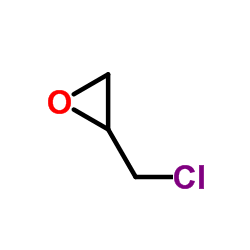

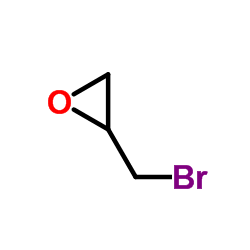
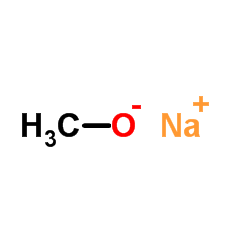






![2-Propanol,1-[(2-hydroxyethyl)amino]-3-methoxy structure](https://image.chemsrc.com/caspic/179/26072-85-5.png)
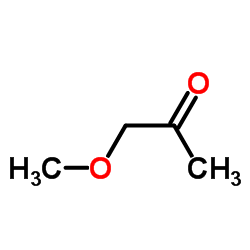

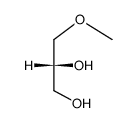
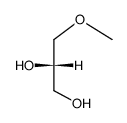
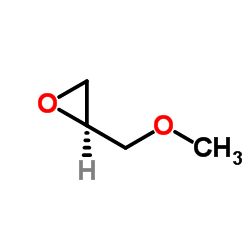

![1-methoxy-3-[4-(4,4,5,5-tetramethyl-1,3,2-dioxaborolan-2-yl)-1H-pyrazol-5-yl]propan-2-ol structure](https://image.chemsrc.com/caspic/001/1000801-77-3.png)
